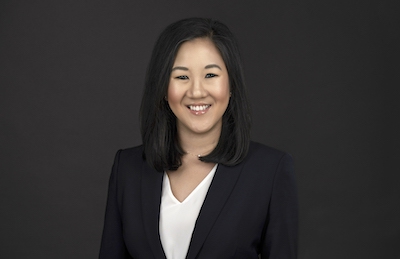In high school, when I opened “The Great Gatsby,” I had no idea these words on the first page would continue to resonate with me:
“Whenever you feel like criticizing anyone… just remember that all the people in this world haven’t had the advantages you’ve had.”
As an adopted child, with special needs, this quote immediately hit home. It summarized my reality of knowing how vastly my life could have been—so many kids don’t get the same chance—either unadopted and “in the system” or unable to get life-changing medical treatment to mitigate the effects of a cleft lip and palate. Google it—the pics may shock you.
My ever-present gratitude for a family I wasn’t born into and medical treatment I wasn’t guaranteed at birth has always motivated me. But two major moments, one personal and one professional, defined the kind of human and attorney I wanted to be.
The first major moment occurred at 16, when I read an op-ed in the St. Louis Post-Dispatch about a boy, my age, who had a cleft palate like me, and just like me, his doctor recommended a maxillary jaw advancement. The surgery involved cutting the jaw beneath the gumline to physically move the jaw forward. Without it, the misalignment of the facial bones would cause chronic oral pain and jawbone degeneration. But unlike me, his health insurance denied coverage claiming the surgery was elective—despite concrete data of the inevitable repercussions of not having the surgery preemptively.
It was not fair. It was not equitable. Why couldn’t that kid have the surgery I was getting? He didn’t deserve it any less than I did. Why did my insurance company say “yes,” and his said “no”? It was just…wrong. And in that moment, I realized that insurance companies do not always do the right thing. They are, after all, for-profit businesses. They exist to make money, and they do that by paying out as little as possible.
After graduation, armed with a law degree, I had the privilege of representing some incredible individuals: Clients induced by their employers to work for free based on promises of sponsorship for immigration visas. And clients who were discriminated against based on their age, gender, and race. And a client who was incarcerated under someone else’s name for 58 days AFTER a judge discovered the error and ordered him released.
But one client who changed me forever, and whose representation is the second major moment defining the lawyer and person I strive to be, was a young man accused of armed robbery. I spent countless hours cultivating his defense. I deciphered cell phone tower data and tracked down witnesses to establish a solid location-based defense and simultaneously discovered compelling evidence of the actual assailant. One prosecutor complained to me about the amount of paperwork I was causing her. I kept pushing. How could they not see the truth? The jury would see. They had to…right? Wrong. The jury could only see what the judge would allow. And at the trial, the judge prohibited admission of the substantial evidence I worked so hard to gather. Our defense was eviscerated. We lost the trial.
My heart was crushed. The sense of utter devastation and helplessness paralyzed me. Salt in the wound was when a friend overheard one of the prosecutors in a bar gloating that he “wiped the floor” with us. Way to go, buddy. You put an innocent kid in jail and are publicly bragging about it.
After that, a stellar appellate team took over. The Missouri Court of Appeals agreed that a manifest injustice occurred and overturned the verdict. I was there the day he was finally released. Tears of relief streamed down my face and mascara stained his shirt as I hugged him. And yet, he comforted me. He told me it was ok. How could this be?
I will always feel a connection to that young man. His story is my professional equivalent to the op-ed I read at 16: The system isn’t always fair. The scales of justice aren’t always in balance. But even more than that, his story is one of perseverance, and the personification of why advocating for the truth, for what is right and wrong, is so important. Even when the fight isn’t fair. Even when the scales are skewed to one side. And echoing the quote I started with, even when advantages are not fairly distributed in this world.
It’s been over a decade since that trial. But I still approach every case with the same zeal and heart as I did with those early cases in my career. One side may have a stacked hand, cards dealt in their favor due to legislation and policies put in place by corporate lobbyists and big insurance companies. But on the other side, there will be attorneys and their clients. Humans driven by more than money and shareholder profits. That’s where my soul resides. The side advocating for what is right, for people who deserve a fair fight. And that is what we strive to accomplish at Finney Injury Law—to equalize the playing field by capitalizing on the weakness left open by insurance companies: they look at claims and see numbers, we look at claims and see real people, with stories that should be told—and most importantly heard. We cannot change how advantages are distributed, but we can strive to hold insurance companies accountable through just compensation for our client’s injuries.
That is who I am, and why I am here at Finney Injury Law.

